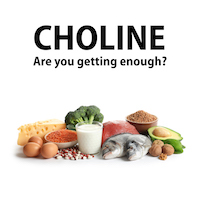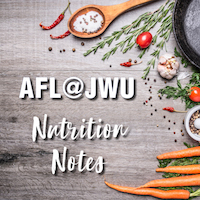Microbiome and Nutrition
The complex community of bacteria, yeasts and viruses living in our intestines, collectively known as the gut microbiome, is shaped, in part, by what we eat. Genetics, environment, and other factors also influence an individual’s microbial community. Research at the NRI investigates these complex relationships and their impact on disease risk. We use animal models and bioinformatics to study the associations between nutritional metabolites, gut microbiome, and health. What happens in the gut doesn’t stay in the gut. Your microbiome can play a role in cardiovascular disease, obesity and diabetes, and even cancer. Our team envisions a future where analysis of your microbiome can determine disease risk, and medical foods can be prescribed to treat and prevent disease by regulating the microbiome.
Publications
Microbiome and Nutrition Publications
2020
Population studies of TMAO and its precursors may help elucidate mechanisms. Meyer K
2019
Association of dietary patterns with the gut microbiota in older, community-dwelling men. Meyer K
2018
Meta-analysis of human genome-microbiome association studies: the MiBioGen consortium initiative. Meyer K
Human microbiota, blood group antigens, and disease. Sumner S
2017
Trimethylamine N-Oxide, the Microbiome, and Heart and Kidney Disease. Zeisel S
2016
Diet and Gut Microbial Function in Metabolic and Cardiovascular Disease Risk. Meyer K
Antibiotic-mediated gut microbiome perturbation accelerates development of type 1 diabetes in mice. Sumner S
Related News
Choline: The forgotten vital nutrient we’re not getting enough of
November 14, 2019 – Eating a plant-based diet? You may be low on choline. Standard nutritional advice to cut down on meat and dairy may be stopping us getting enough of an essential nutrient named choline. Should we be worried?
If food is medicine, why isn’t it taught at medical schools?
November 14, 2019 – Students in medical schools across the country spend less than 1 percent of lecture time learning about diet. Earlier this year, Mount Sinai, the biggest hospital network in New York City, invested in a meal delivery service. Though it seemed like an unusual move at the time, the network’s decision makes sense if you consider the intrinsic relationship between food and health—a connection underscored by countless other recent examples of healthcare initiatives that harness diet as a tool to improve well-being.
Saroja Voruganti, PhD, Promoted to Associate Professor of Nutrition
October 22, 2019 – Saroja Voruganti, PhD, was recently promoted to the rank of Associate Professor in the Department of Nutrition at the University of North Carolina at Chapel Hill. Nutrition Research Institute (NRI) Director Steven Zeisel, MD, PhD, announced the promotion with great pleasure, acknowledging the significance of this accomplishment and the impact of Dr. Voruganti’s research: “Dr Voruganti is a leading scientist in the area of how our genes affect our nutritional needs, and her promotion by the university recognizes these important contributions.”
AFL@JWU Nutrition Notes – October 15, 2019
October 15, 2019 – Chef Megan Lambert, MS, RD, Senior Instructor in College of Culinary Arts at Johnson & Wales University, Charlotte, prepared Healthy Fall soups & Stews recipes while Sarah Hreyo of the UNC Nutrition Research Institute, shared nutrition information on each recipe. The nutrition notes from the October 15, 2019 Appetite For Life @ Johnson & Wales University program are available here to help you better understand the nutrition and health benefits of each recipe.
AFL@JWU Recipes – October 15, 2019
October 15, 2019 – Chef Megan Lambert, MS, RD, Senior Instructor in College of Culinary Arts at Johnson & Wales University, Charlotte, prepared Healthy Fall Soups & Stews recipes while Sarah Hreyo of the UNC Nutrition Research Institute, shared nutrition information on each recipe. The recipes from the October 15, 2019 Appetite For Life @ Johnson & Wales University program are available here for your cooking enjoyment!
September AFL Program Recap: “Good Bowls: A social venture to improve healthy food access”
September 25, 2019 – If you missed September’s Appetite for Life presentation by Alice Ammerman, DrPH, you can catch up. Watch the entire program on video now. The live presentation took place at the Rowan-Cabarrus Community College Biotechnology Training Center in Kannapolis on Wednesday, September 18, 2019.







